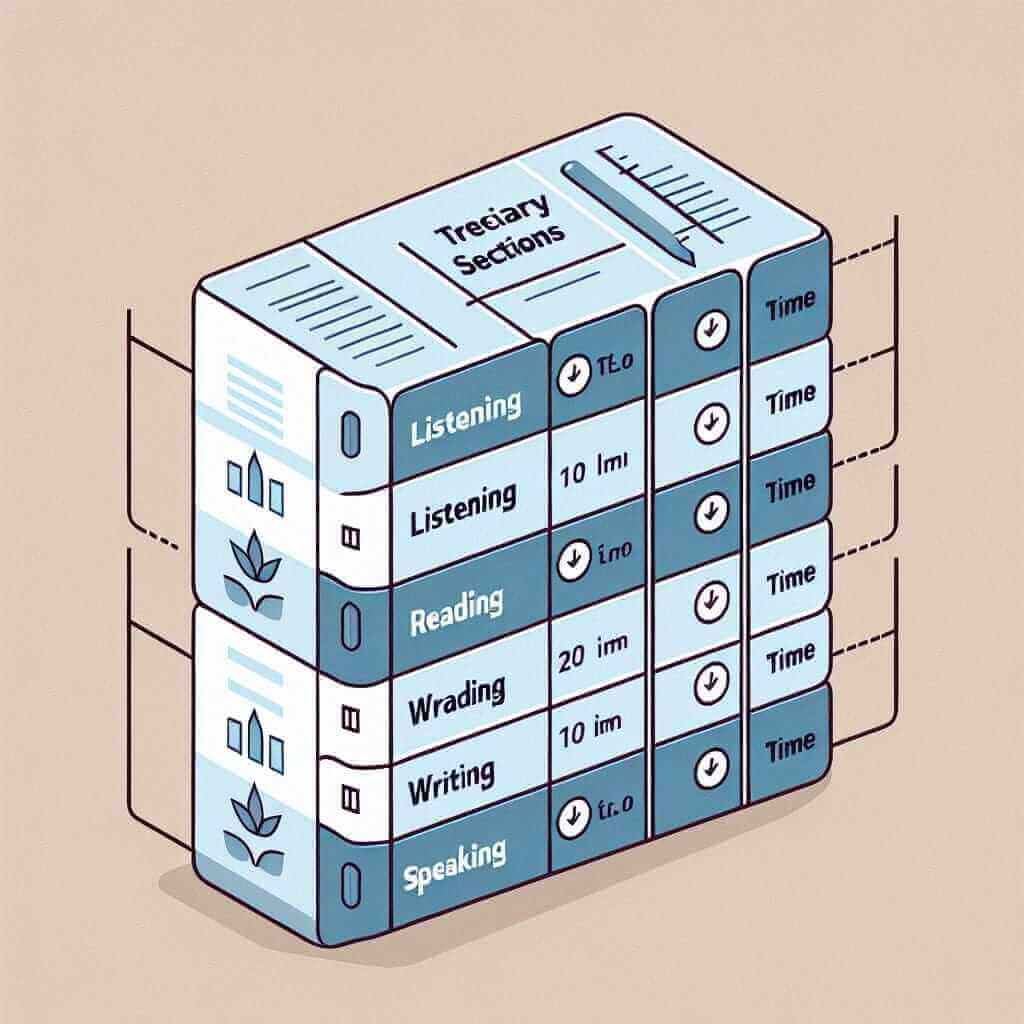For many English language learners, achieving a high IELTS band score is a crucial step towards academic and professional goals. Whether you’re aiming for university admission, career advancement, or immigration, understanding how to excel in this exam can significantly impact your future. This comprehensive guide will delve into proven strategies and techniques to help you boost your IELTS score, addressing common concerns and providing actionable steps for improvement.
Nội dung bài viết
Understanding the IELTS Exam and Band Scores
Before diving into improvement strategies, it’s crucial to understand how the IELTS exam is structured and how your performance translates into band scores. The IELTS exam assesses your English language proficiency across four modules: Listening, Reading, Writing, and Speaking. Each module is graded on a 9-band scale, with 1 being the lowest and 9 the highest. Your overall band score is an average of these four individual scores.
Key Areas for IELTS Improvement
1. Vocabulary Enhancement
Why is it important? A wide-ranging vocabulary is crucial for expressing yourself clearly and effectively in all sections of the IELTS exam.
Examples and Application:
- Using synonyms and paraphrasing: Instead of repeating the same word, demonstrate your vocabulary by using synonyms. For example, instead of saying “happy” repeatedly, use words like “joyful,” “elated,” or “content.”
- Understanding collocations: Collocations are words that are frequently used together. Mastering them makes your English sound more natural and fluent. Examples include “strong opinion,” “heavy rain,” or “make a decision.”
- Learning topic-specific vocabulary: Familiarize yourself with common IELTS themes such as education, environment, technology, and healthcare. This will help you understand and respond to questions more effectively.
IELTS Practice:
- Reading: Pay attention to unfamiliar words and phrases in reading passages and try to infer their meanings from the context.
- Writing: Use a variety of vocabulary when presenting your ideas in Writing Task 1 and 2.
- Speaking: Demonstrate your vocabulary range by using different words and expressions when answering questions.
2. Grammar Accuracy
Why is it important? Grammatical accuracy is essential for clear communication and demonstrates your command of the English language.
Examples and Application:
- Tenses: Ensure you use the correct tenses to describe events in the past, present, and future. Practice using a range of tenses, including present perfect, past perfect, and future continuous.
- Articles: Pay close attention to the use of articles (a, an, the) as incorrect usage is a common error.
- Sentence structure: Avoid writing fragmented or overly complex sentences. Aim for clear and concise sentences with correct subject-verb agreement.
IELTS Practice:
- Writing: Proofread your essays carefully for any grammatical errors.
- Speaking: Focus on speaking grammatically correct sentences during the Speaking test.
3. Coherence and Cohesion
Why is it important? Your ideas should be logically organized and connected, making your writing and speaking easy to follow and understand.
Examples and Application:
- Using linking words: Use a variety of cohesive devices such as conjunctions (and, but, so), adverbs (however, furthermore, therefore), and pronouns (it, this, they) to connect your ideas smoothly.
- Paragraph structure: Ensure each paragraph has a clear topic sentence and supporting details. In Writing Task 2, present your arguments or viewpoints in separate paragraphs.
- Discourse markers: Use discourse markers like “Firstly,” “Secondly,” “In conclusion” to guide the reader or listener through your arguments.
IELTS Practice:
- Writing: Practice writing essays with clear introductions, body paragraphs, and conclusions.
- Speaking: Organize your thoughts before speaking to ensure a coherent and cohesive response.
 IELTS Exam Format
IELTS Exam Format
Common Mistakes and How to Avoid Them
-
Neglecting Time Management: Many candidates struggle to complete all tasks within the allotted time. Practice under timed conditions to improve your speed and efficiency.
-
Ignoring Instructions: Carefully read and follow all instructions given in the question. Misinterpreting instructions can lead to losing valuable marks.
-
Memorizing Answers: Examiners can easily identify memorized responses. Focus on understanding concepts and developing your own ideas.
Effective Practice Strategies for IELTS Success
- Regular Practice Tests: Familiarize yourself with the test format and identify areas that need improvement.
- Focus on Weak Areas: Don’t neglect your weaker skills. Dedicate more time and effort to improving areas where you score lower.
- Seek Feedback: Ask a teacher or tutor to review your writing and speaking and provide constructive criticism.
- Immerse Yourself in English: Engage with English daily through reading, listening to podcasts, watching movies, and conversing with native speakers.
Conclusion
Improving your IELTS band score requires focused effort, consistent practice, and a strategic approach. By concentrating on vocabulary enhancement, grammar accuracy, and coherence, while actively addressing common mistakes, you can significantly boost your performance. Remember, practice makes perfect. The more you immerse yourself in the English language and familiarize yourself with the IELTS exam format, the more confident and prepared you will be on test day. Good luck!


